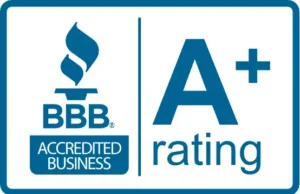Currently, Synchrony offers low monthly payments and many financing options. You can have your home repaired now and pay later with one of Synchrony's six monthly payment programs.
House leveling has become an increasingly important concern for homeowners in China, Jefferson County, as the region experiences various geological and environmental factors that can affect residential foundation stability. The unique soil composition and climate patterns in this area of Jefferson County create specific challenges that require professional attention and expertise to address effectively.
Several factors contribute to foundation issues in China, Jefferson County. The expansive clay soils prevalent throughout much of Jefferson County are particularly problematic, as they expand significantly when wet and contract dramatically during dry periods. This constant cycle of expansion and contraction puts tremendous stress on residential foundations, leading to settling, cracking, and structural misalignment over time.
Additionally, the region’s seasonal weather patterns, including periods of heavy rainfall followed by drought conditions, exacerbate these soil movement issues. Poor drainage around homes can further compound the problem by allowing water to accumulate near foundations, creating hydrostatic pressure and accelerating the settlement process.
Homeowners in China should be vigilant for several warning signs that indicate potential foundation problems. Doors and windows that stick or fail to close properly often signal that the house frame has shifted due to foundation settlement. Cracks in interior walls, particularly where walls meet ceilings, are another common indicator of structural movement.
Furthermore, uneven or sloping floors can suggest significant foundation issues that require immediate attention. Gaps between walls and baseboards, as well as cracks in exterior brick or siding, may also indicate that the foundation has shifted and professional leveling services are necessary.
When addressing house leveling concerns in Jefferson County, it’s essential to work with experienced professionals who understand the specific challenges of the local environment. Allied Foundation specializes exclusively in residential services, providing focused expertise for homeowners dealing with foundation settlement issues. Their residential-only approach ensures that clients receive targeted solutions designed specifically for home foundation problems.
Professional foundation repair typically involves several methods, including steel pier installation, concrete slab lifting, and comprehensive drainage solutions. The specific approach depends on the severity of the settlement, soil conditions, and the particular characteristics of each residential property. Modern techniques allow for precise leveling while minimizing disruption to the surrounding landscape and home interior.
For China residents experiencing foundation concerns, prompt attention to these issues can prevent more extensive and costly damage over time, ensuring the long-term stability and value of their residential investment.
Proudly Serving China for over 40 years!


